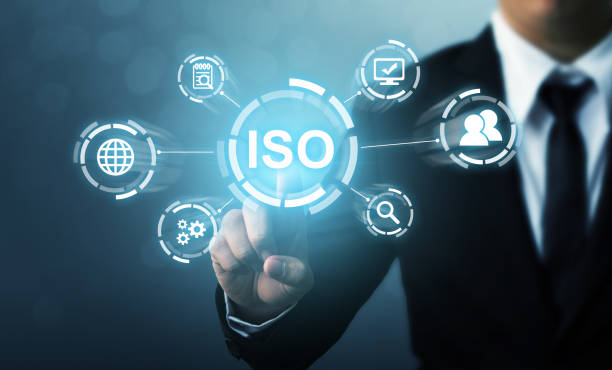ISO
What is ISO Certification
ISO Certification is a stamp of approval from a third party body that a company runs to one of the international standards developed and published by the International Organization for Standardization (ISO).
The ISO is an independent, non-governmental international organization that brings together experts to share knowledge, and develop international standards that support modernity and provide solutions to global challenges.
 Why would I want ISO Certification?
Why would I want ISO Certification?
ISO Certification shows your key stakeholders that you have a well-run business that has structure, is stable and is ready for growth.Each ISO standard has its advantages, for example:
- ISO 9001 helps put your customers first
- ISO 27001 protects your systems, data, and reputation
- ISO 14001 reduces your environmental impact
- ISO 45001 helps you protect your people
- ISO 22301 protects your business from disruption
Common advantages across all ISO Standards include:
- Increased efficiency
- Reduced costs
- Improved customer satisfaction
- More engaged employees
- Reduced risks
- Reduced insurance premiums
- Helps with tendering
By maintaining an ISO Certification you are proving your organization’s commitment to achieving your objectives and increasing the credibility and customer confidence in your product or service.
What does ISO Certification Cost?
ISO Certification costs vary depending on the size of an organization and the level to which the company is already run with regards to processes and procedures.
If you decide to implement more than one standard at the same time, there are some preferential fees available.
We offer a simple, cost-effective service with flexible payment terms. You can request a quote here.
Due to our proposals being bespoke and the number of variables that can affect the cost of implementation, we do like to meet our potential clients to get to know them a little better before providing them with costs.
How long is the ISO Certificate valid for?
Every provider is different, here at ISO Quality Services, our certificates are valid for one year and, are subject to annual recertification audits to ensure you are still compliant.
In addition, we also provide annual support visits to provide you with extra support in any areas you are struggling with. Failure to be re-certificated is therefore rare.
We believe it takes around three years for a management system to fully mature and by this point, over 90% of customers recognize the value their management system provides.
Which ISO Standards do we need?
There are over 20,000 different management standards, therefore finding the ones that are right for your business can sometimes be confusing.
The best place to start is ISO 9001 Quality Management, as this is the core standard that most of the other well-known standards are based on.
It’s focused on customer service and ensuring your customer receives the service they want, at a time that’s relevant for a fair cost.
Based on your company’s activities there may be additional ‘bolt-on’ standards that you may require or that might complement the business,
for example:-
- ISO 27001 protects your systems, data, and reputation
- ISO 14001 reduces your environmental impact
- ISO 45001 helps you protect your people
- ISO 22301 protects your business from disruption
ISO 9001 Mandatory Requirements — Documents and Records
- A Monitoring and measuring equipment calibration records.
- The records of training, skills, experience, and qualifications.
- Product/service requirements review records.
- Record design and development outputs review.
- Record design and development inputs.
Conclusion
The ISO is an international organization that has had and will continue to have significant effects on business in many areas including,
but not limited to, quality management and environmental performance.

